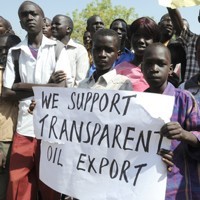
In the most recent presidential debate, Republican nominee Mitt Romney attempted to tap into a deep-rooted fear among the American public of instability in the Middle East, and in particular the concern that any resulting oil supply disruption would spike oil prices and trigger a recession. The concern is historically based: Past recessions have been caused or accelerated by such crises, including the 1973 oil embargo, the 1979 Iranian revolution and the 1980 outbreak of the Iran-Iraq war. Contrary to received wisdom, however, the chance of an oil crisis caused by a hard-to-manage oil disruption has decreased substantially since the […]


